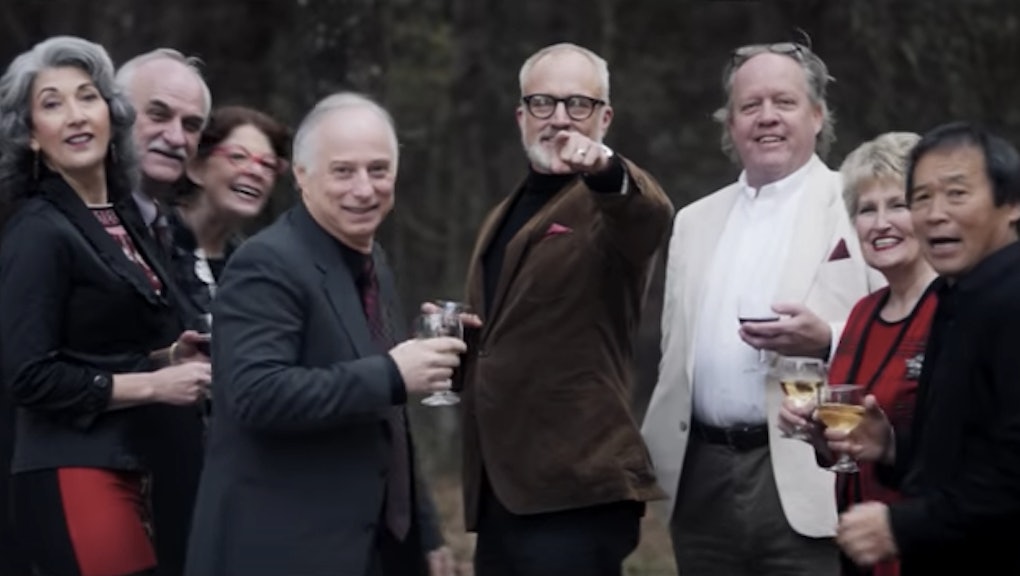A deep-dive into Get Out: A series in five parts - Quintet Part 4 - Uncanny Parallels
The movie reflects heavily on the precarious and eerie race relations and dynamics in contemporary America, in particular the experience and plight of African Americans. One theme Peele draws constant attention to is that of being the lone person of color or being a minority in a white dominated and white majority space. The viewer gets to vicariously live through this same ordeal which in reality turns out is quite horrifying and unpleasant to live through. As a POC myself, but having had the fortune of never having been to a space overcrowded by white people, it made my skin crawl and my body swept up and down with anxiety to merely watch the film and as I watched more I only grew more and more unsettled with extra cold sweat trickling down my back. I felt nauseated and claustrophobic just imagining being awash with that kind of experience that Chris was being inflicted with on an ongoing daily basis. In her scorching novel ‘Such a Fun Age’ that dropped late last year, Kiley Reid, paints a similar picture where a black female baby sitter finds herself in an high end shopping mall as the lone POC amongst a sea of whites. This realisation creeps up on her as the mall seems ’very white and very still’ and her interaction with this sea makes her feel as if her entire existence had been annulled, as if she were “raising her arm as if she were finding a friend in a large crowd, with a phone to her ear, and saying, Do you see me? I’m waving my hand.” Kiley eloquently captures the sense of dread in her prose that Joran communicates through Get Out. This feeling of having your sense of self undermined and diminished, this sense of unshakable foreboding and anxiety, this feeling that you can not be yourself as being yourself would be the greatest affront to these whites who are locked in on you, these feelings that are very real but would be hard to explicate to another person who has not been through the same makes for one of the most dreadful and tormenting experiences in white majority spaces for the average POC.
Any seemingly well-meaning whites though acting with better intent nevertheless achieve the same end of making POCs hyper aware that they have a different skin color through their unceasing and cringe-inducing ways of trying to prove they’re not racist. There’s a palpable sense of being talked down to and contrived-ness that permeates how they interact with POCs. As with Dean’s conspicuous use of urban dialect and colloquiums as part of his effort to make Chris feel at home or Jeremy trying to get Chris to spar with him indulging in the stereotype that blacks are inherently physical brutes or the group of guests thinking the hallmark of non-racist behaviour is putting POC on the spot at a white-majority party then asking them to speak of the ‘African-American experience’. If anything these behaviours only serve to make POCs feel more like freaks and signal to them that someone is trying too hard to overcompensate for or hide something nasty underneath.
Of course, one of the tell-tale signs of this is when you see, as we witness in the film too, white people bring up their love for Obama or Tiger Woods or Michael Jordan, etc as firm corroboration to their implications of not being a racist. This use of famous black people as tokens to absolve themselves as not guilty of racism is not only no different than the misogynist saying he doesn’t hate women because he married one, but also shows how swift they are to objectify POC as neat little tools to meet their ends while having zero self-awareness about the same.
One of the things that the film’s centrepiece - the coagula procedure - can be said to be a metaphor for is the practice of gentrification. If you didn’t know what the term stood for it refers to the rampant practice among white land owners and land lords to deny accommodation to POC and expel them from their own properties rendering them without a home. In the film Peele maybe drawing a parallel between gentrification and the coagula in the sense that the black victims are being gentrified out of their own bodies as the white master claims ownership unjustly of what was never rightfully theirs.
The there’s also the constant thread of friction between different dialects of English - the one used by the whites being perceived as superior to the African-American dialect of English and the latter’s use being met with passive aggression and hostile correction. There has already been a large body of commentary on English - specifically certain dialects popular among Whites - used as a tool of imperialism in modern and bygone times. The exchange between Georgina and Chris is paradigmatic of this problem.
CHRIS: No. It’s fine. I wasn’t tryin’ to snitch...
GEORGINA: Snitch?
CHRIS: Rat you out?
GEORGINA “tattletale.”
CHRIS: Yeah.
One final detail I’d like to bring up for discussion is the curious lone middle-aged Japanese man at the Armitage gathering. He is the only other POC present at the shindig aside from Chris who still seems to be himself and not a vessel for a white person. Even more curiously he is one of the many present at the game of bingo to win rights to Chris’s body. So what is going on here? My guess, Jordan Peele is making a reference to Japan’s ongoing problem with xenophobia in their own country, how Japan was allied with fascistic regimes during the World Wars and how even today Asian Americans display a shocking tendency to align and assimilate themselves with the dominant culture instead of the marginalised and downtrodden.






Comments
Post a Comment